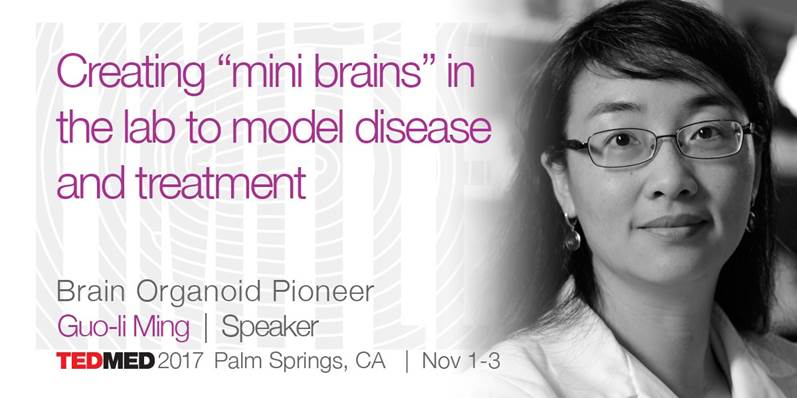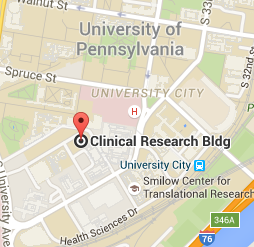News
A new waste clearance mechanism protects the brain
February 16, 2026
In a new study published in Nature by Cho et al, from John Herr Musser Professor Amita Sehgal's lab, the authors identify a novel cellular function for sleep. Using a Drosophila model, they show that circulating macrophage-like cells clear the brain of lipids during sleep. This process constitutes a waste clearance mechanism that protects brain mitochondria from oxidative damage. Listen to a Nature podcast on how "these hungry immune cells tidy sleeping flies’ brains."
Drs. Song and Ming receive Cohen Award
December 18, 2025
Guo-li Ming, MD, PhD, and Hongjun Song, PhD, both Perelman Professors of Neuroscience, have received the Stanley N. Cohen Biomedical Research Award in recognition of their groundbreaking research, which has transformed our understanding of brain development, plasticity, and disease.
Machado wins multiple awards
November 11, 2025
Assistant Professor Tim Machado has recently won several prestigious awards. In addition to being named an HHMI Freeman Hrabowski Scholar, he also received the Beckman Young Investigator Award and the Brain and Behavior Foundation Young Investigator Award. We offer our heartiest congratulations to Tim!
New book from Michael Platt
November 11, 2025
Michael Platt, the James S. Riepe University Professor, Professor of Neuroscience, Professor of Psychology, and Professor of Marketing, published his latest book, The Leader's Brain, in October 2025. It's an updated edition of his book originally published in 2020. Drawing on more than two decades of research at the intersection of neuroscience, psychology, and business, Platt reveals how leaders can develop critical abilities through understanding the brain’s inner workings.

Brain Cancer Organoids Reveal Response to CAR-T Cell Therapy in Real Time
December 16, 2024
Researchers at the Perelman School of Medicine, led by Hongjun Song, PhD, the Perelman Professor of Neuroscience, and Donald O’Rourke, MD, the John Templeton, Jr., MD, professor in Neurosurgery and director of the Glioblastoma Translational Center of Excellence at the Abramson Cancer Center, have for the first time used lab-grown organoids created from glioblastoma (GBM) patients’ tumors to accurately model a patient’s response to chimeric antigen receptor (CAR)-T cell therapy in real time.
A Clue to the Complexity of Pain
May 30, 2024
Mechanical hyperalgesia is pain from things that should feel like a gentle touch, such as clothes against the skin. Researchers led by Mayank Gautam, PhD, and Wenqin Luo, MD, PhD, both of Neuroscience, sought to discover the neuronal mechanisms governing this response and showed that prominent touch neurons called Aβ low-threshold mechanoreceptors (Aβ-LTMRs) can both trigger and inhibit the condition.
Dorothy P. Schafer, PhD, Wins the 2024 MINS Rising Star Award
March 27, 2024
The Mahoney Institute for Neurosciences (MINS) Rising Star Award, this year in the area of Neuroimmunology, has been awarded to Dorothy P. Schafer, PhD, an Associate Professor in the Department of Neurobiology at the University of Massachusetts Chan Medical School.
What the brain reveals in nature’s subtle game of give and take
March 26, 2024
Research led by Michael Platt uncovers the neural pathways for primate reciprocity, social support, and empathy.
You Toss and Turn
January 31, 2024
A potential future target for therapies to address “fragmented” sleep was discovered by a team led by Shinjae Chung, PhD, of Neuroscience. The researchers showed that a cluster of cells in the pre-optic area of the hypothalamus (POA) cause the “micro-arousals” associated with bad sleep when they are stimulated artificially or by severe stress. Therapies that inhibit these POA cells could one day help people sleep better.
Research shows how stress activates neurons that disrupt sleep
December 18, 2023
A study led by Shinjae Chung and graduate student Jennifer Smith of the Perelman School of Medicine has identified how stress fires up brain cells at the wrong time during sleep stages, causing interrupted slumber and poor quality of rest.
Could Newborn Neurons Reverse Alzheimer's?
1fe8November 16, 2023
New research presented by Hongjun Song, PhD, a professor of Neuroscience, suggests that a tiny strip of brain tissue called the dentate gyrus is one of the few bits of the mouse brain to generate new neurons even in adulthood. Song and collaborators suggest that this process might hold promise for developing treatments for Alzheimer's disease.
Some Kids Are Genetically Predisposed to Poor Sleep
November 09, 2023
According to new research, establishing healthy bedtime habits for your child early on is vital if at least one parent has chronic sleep difficulties. Amita Sehgal, MD, vice chair of Neuroscience and director of the Chronobiology Program, underscored the importance of paying attention to your child’s individual circadian rhythms.
Understanding the Brain via a Molecular Map
October 13, 2023
PIK Professor Michael Platt and collaborators have generated the first single-cell ‘atlas’ of the primate brain to help explore links between molecules, cells, brain function, and disease.
Trading decisions are observable in the eyes of buyers and sellers
September 05, 2023
In a new collaborative study, PIK Professor Michael Platt models how the decision-making process unfolds in the brains of buyers and sellers considering a deal.
A link between social environment and healthy brains in wild rhesus macaques
December 02, 2022
Research from Penn, Arizona State University, the National Institute of Mental Health, and elsewhere finds that on the island of Cayo Santiago, female monkeys with a higher social status had younger, more resilient molecular profiles.
New Insights into Brain Plasticity and Other Functions
July 29, 2022
"Many mammals generate new neurons in their brains throughout their lifespans which play a critical role in the brain’s plasticity, or ability to change and adapt over time. This ability to repair itself is especially important when the brain is damaged, which is what happens during a stroke or brain injury," said senior author Hongjun Song, PhD, a Perelman Professor of Neuroscience at Penn.
Song/Ming labs showed immature, plastic neurons are present in significant numbers throughout the human lifespan
July 28, 2022
Hongjun Song Wins Landis Award for Outstanding Mentoring
July 11, 2022
Trainees credit Dr. Song with purposeful, individualized mentoring that extends beyond science to their families and personal lives.
Amita Sehgal Named 2021 SRBR Pioneer
November 30, 2021
The Society for Research on Biological Rhythms launched the Pioneer program to recognize scientists who made the field into what it is today through leadership, scientific contribution, research training, and mentoring. Click here to see the full list of Pioneers.
John Dani wins MERIT Award
October 18, 2021
The Neuroscience Chair/MINS Director won a MERIT Award from NIH NIDA for a research grant.
What a Video Game Can Reveal About Monkeys’ Minds
April 06, 2021
Michael Platt, who has studied cognition in monkeys for decades, and his team, then at Duke University, recently harnessed a combination of brain monitoring and machine learning in a bid to get closer to answering this question.
Penn MindCORE Behind the CV with John Dani
March 17, 2021
MindCORE spotlights the life of John Dani, PhD (Chair, Dept. of Neuroscience; David J. Mahoney Professor of Neurological Sciences; UPenn).
Black Lives Matter
August 12, 2020
The Department of Neuroscience and the Mahoney Institute for Neurosciences (MINS) are committed to Black Lives Matter and strongly believe that greater diversity among our Students, Trainees, Staff, and Faculty will strengthen our program. We will participate wholeheartedly in the University of Pennsylvania’s Action for Cultural Transformation and will strive to reveal and remove bias, both conscious and unconscious. We strive to ensure equity and inclusion in hiring and treatment practices across the neuroscience community. Our goal is a neuroscience community that is inclusive and affirmatively anti-racist in all aspects of its operations.
John A. Dani, Ph.D.,
David J. Mahoney Professor of Neurological Sciences
and Chair of Neuroscience
Director, MINS
John A. Detre, M.D.
e81
Professor of Neurology
Director, Penn Brain Science Center
Minghong Ma, Ph.D.
Co-Vice Chair for Diversity and Inclusion and
Professor of Neuroscience
Jonathan Raper, Ph.D.
Vice Chair for Research and
Professor of Neuroscience
Brian M. Salzberg, Ph.D.
Co-Vice Chair for Diversity and Inclusion and
Professor of Neuroscience and Physiology
Amita Seghal, Ph.D.
Vice Chair for Professionalism and
John Herr Musser Professor of Neuroscience
Director, Chronobiology and Sleep Institute
Overcoming Injustices
June 04, 2020
In a message to the Penn community, President Amy Gutmann wrote of the “grim manifestations of ongoing racism, repression, and inflammation of hatred in our society.”
Neuroscience Chair John Dani on PBS's "Counter Culture"
March 03, 2020
On this episode, host Grover Silcox welcomed Dr. Dani, who discussed how the adolescent brain can be impacted by stress and nicotine, leading to greater vulnerability to addictions later in life.
Guo-li Ming, MD, PhD, is one of six PSOM faculty named to the National Academy of Medicine
October 20, 2019
Professor Guo-li Ming, MD, PhD, is one of six faculty members from the Perelman School of Medicine at the University of Pennsylvania have been elected to the National Academy of Medicine (NAM), one of the nation's highest honors in biomedicine
Amita Sehgal's Research Featured in "Smithsonian Magazine"
February 05, 2019
These results, Sehgal explained, indicate that “sleep regulation is closely linked to the immune system, in particular how the body deals with sleep deprivation.
Penn Medicine Neuroscientist Receives Hartwell Individual Biomedical Research Award
June 01, 2018
Shinjae Chung, PhD, Assistant Professor of Neuroscience has been named a recipient of a 2017 Hartwell Individual Biomedical Research Award.
Teens Who Smoke More Likely to Abuse Alcohol as Adults
April 19, 2018
Smoking as a teen could be even worse than lighting up later in life, a new animal study led by John Dani, PhD, chair of Neuroscience, has found. Early exposure to nicotine may change the way the brain responds to rewards and put users at a later, greater risk to abuse alcohol.
2017 Hartwell Individual Biomedical Research Awards - Shinjae Chung
April 01, 2018
The Hartwell Foundation today officially announced the recipients of the 2017 Hartwell Individual Biomedical Research Awards.
Penn’s Mahoney Institute for Neurosciences Announces Inaugural Recipient of Rising Star Award
March 12, 2018
Washington University’s Michael Bruchas honored for addiction research
Early-Career Penn Medicine Biology, Neuroscience Researchers Receive Sloan Fellowships
March 09, 2018
Shinjae Chung, PhD, an assistant professor of Neuroscience, and Iain Mathieson, PhD, an assistant professor of Genetics, both from the Perelman School of Medicine at the University of Pennsylvania, have been awarded highly competitive 2018 Sloan Research Fellowships.
How Brain Develops Before Birth is Tightly Controlled by RNA Modification
September 28, 2017
A chemical tag added to RNA during embryonic development regulates how the early brain grows, according to research from the Perelman School of Medicine at the University of Pennsylvania. The findings are published this week in Cell.
Catch up with Amita Sehgal
March 23, 2017
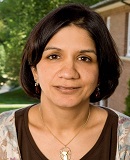 Amita Sehgal, the John Herr Musser Professor of Neuroscience
Amita Sehgal, the John Herr Musser Professor of Neuroscience
in the Perelman School of Medicine and director of the Chronobiology Program at Penn, discusses her interest in science and sleep, fruit flies, sleep mutants, biological clocks, and the health hazards of working at night.
Congratulations
December 12, 2016
 Greg Bashaw, has been awarded research funding under a novel, multi-year pilot program from the National Institute of Neurological Disorders and Stroke.
Greg Bashaw, has been awarded research funding under a novel, multi-year pilot program from the National Institute of Neurological Disorders and Stroke.
Neural Response
November 18, 2016
 A team led by John Dani, PhD, chair of the department of Neuroscience in the Perelman School of Medicine, found that rodents that had been exposed to stress had a weakened alcohol-induced dopamine response and voluntarily drank more alcohol compared to controls.
A team led by John Dani, PhD, chair of the department of Neuroscience in the Perelman School of Medicine, found that rodents that had been exposed to stress had a weakened alcohol-induced dopamine response and voluntarily drank more alcohol compared to controls.
Flies Sleep Just Like Us
June 30, 2016
 Amita Sehgal, PhD, a professor of Neuroscience and director of the Chronobiology Program, is featured in a Stat "Science Happens" video on her lab's research on fruitflies and the mysteries of sleep.
Amita Sehgal, PhD, a professor of Neuroscience and director of the Chronobiology Program, is featured in a Stat "Science Happens" video on her lab's research on fruitflies and the mysteries of sleep.
Amita Sehgal, PhD, Penn Medicine Neuroscientist Elected to the National Academy of Science
May 19, 2016
 Amita Sehgal, PhD, a professor of Neuroscience and director of the Chronobiology Program, is featured in a Stat "Science Happens" video on her lab's research on fruitflies and the mysteries of sleep.
Amita Sehgal, PhD, a professor of Neuroscience and director of the Chronobiology Program, is featured in a Stat "Science Happens" video on her lab's research on fruitflies and the mysteries of sleep.
Coordination
May 17, 2016
 Led by Amita Sehgal of Medicine, researchers have found that a rhythm of cellular detox in flies and mammals is synchronized by a neuropeptide that also drives feeding.
Led by Amita Sehgal of Medicine, researchers have found that a rhythm of cellular detox in flies and mammals is synchronized by a neuropeptide that also drives feeding.
Neural Circuits
May 03, 2016
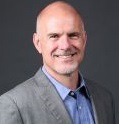 A new NIH grant will allow PIK Prof Michael Platt to continue work on social functions in the brain, which could ultimately aid those with autism or schizophrenia.
A new NIH grant will allow PIK Prof Michael Platt to continue work on social functions in the brain, which could ultimately aid those with autism or schizophrenia.
PIK Professor Michael Platt Earns $2.9 Million NIH Award for Neural Circuitry Work
May 03, 2016
 Michael Platt of the University of Pennsylvania has received a five-year, $2.9 million Method to Extend Research In Time, or MERIT, award from the National Institute of Mental Health to continue his work on the neural circuits that mediate complex social cognition.
Michael Platt of the University of Pennsylvania has received a five-year, $2.9 million Method to Extend Research In Time, or MERIT, award from the National Institute of Mental Health to continue his work on the neural circuits that mediate complex social cognition.
Penn Researchers’ Theory: Brain’s Location-tracking Cells Use Transcendental Number System
March 31, 2016
 Vijay Balasubramanian and grad student Xue-Xin Wei of Arts & Sciences have a new theory for how the brain keeps track of locations on a mental map.
Vijay Balasubramanian and grad student Xue-Xin Wei of Arts & Sciences have a new theory for how the brain keeps track of locations on a mental map.
Both Sides Now: Dopamine, the Brain's "Reward" Molecule, also Controls Learning to Avoid an Unpleasant Experience, Penn Animal Study Finds.
February 29, 2016
 The brain chemical dopamine regulates how mice learn to avoid a disagreeable encounter, according to new research from the Perelman School of Medicine at the University of Pennsylvania. “We know that dopamine reinforces ‘rewarding’ behaviors, but to our surprise, we have now shown that situations that animals learn to avoid are also regulated by dopamine,” said senior author John Dani, PhD, chair of the department of Neuroscience. The team’s findings are published on March 1st, 2016 in Cell Reports.
The brain chemical dopamine regulates how mice learn to avoid a disagreeable encounter, according to new research from the Perelman School of Medicine at the University of Pennsylvania. “We know that dopamine reinforces ‘rewarding’ behaviors, but to our surprise, we have now shown that situations that animals learn to avoid are also regulated by dopamine,” said senior author John Dani, PhD, chair of the department of Neuroscience. The team’s findings are published on March 1st, 2016 in Cell Reports.
Research Star
February 26, 2016
 Congratulations to Matthew Kayser for receiving the 2016 Sloan Fellowship Award given to early-career scientists seen as industry leaders.
Congratulations to Matthew Kayser for receiving the 2016 Sloan Fellowship Award given to early-career scientists seen as industry leaders.
Congratulations to Josh Gold and Joe Kable on their $1,000,000 award from NSF!
August 25, 2015
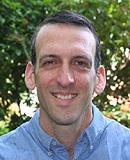 Penn Neuroscientists Receive $1 Million "BRAIN" Grant from National Science Foundation. Award supports the study of norepinephrine's role in individual differences in learning.
Penn Neuroscientists Receive $1 Million "BRAIN" Grant from National Science Foundation. Award supports the study of norepinephrine's role in individual differences in learning.
Dr. Marc Fuccillo, Assistance Professor Neuroscience, has won the McCabe Fund Award for his especially meritorious proposal exploring the neural circuits neuropsychiatric disease.
August 01, 2015

Go Green
March 21, 2006
 Medicine's Peter Sterling called for scientists to reduce their carbon footprint while engaging in professional activities, particularly when traveling for research meetings.
Medicine's Peter Sterling called for scientists to reduce their carbon footprint while engaging in professional activities, particularly when traveling for research meetings.

